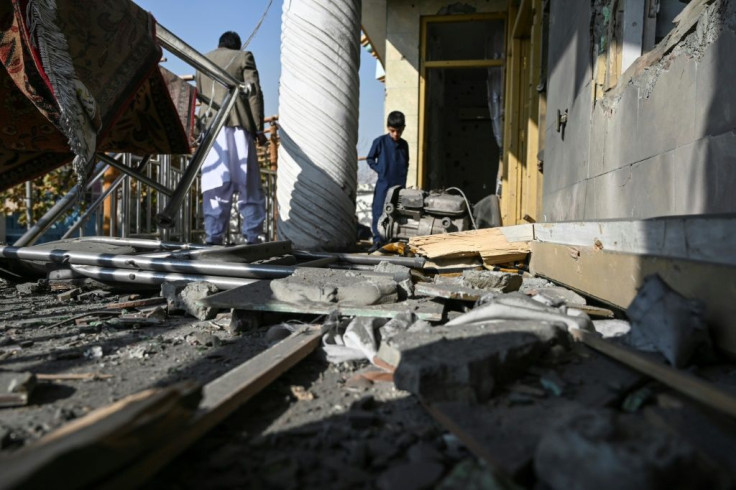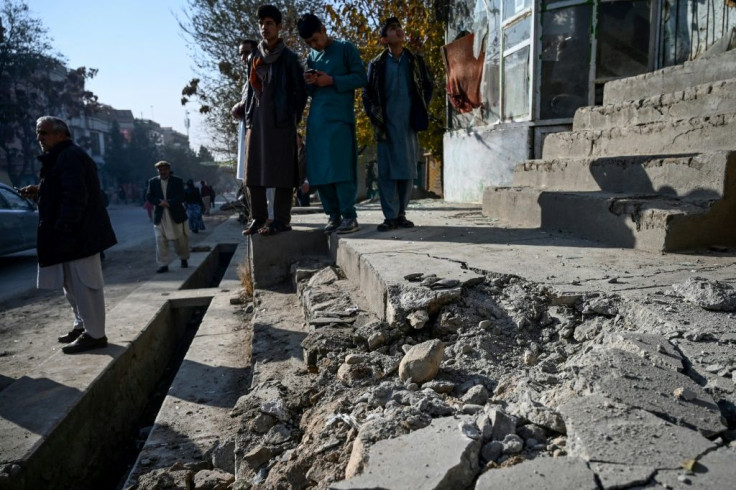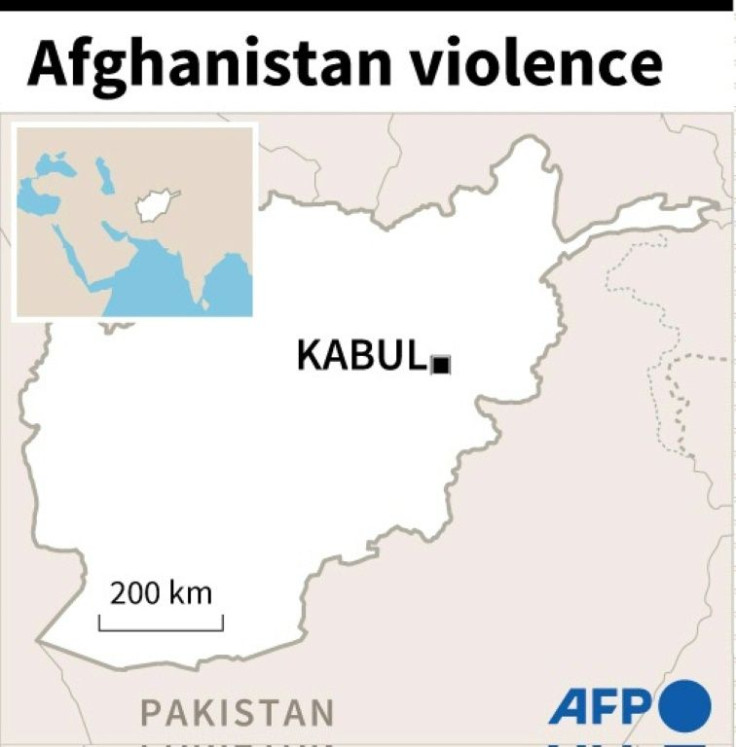IS-claimed Rocket Attack On Kabul Kills Eight
At least eight people were killed Saturday when a barrage of rockets struck densely populated parts of Kabul, the latest big attack in a wave of violence that has engulfed the Afghan capital.
The Islamic State (IS) group claimed responsibility for the salvo, which slammed into various parts of central and north Kabul -- including in and around the heavily fortified Green Zone that houses embassies and international firms -- just before 9:00 am (0430 GMT).
The attack came hours before US Secretary of State Mike Pompeo was to meet with negotiators from the Afghan government and the Taliban in the Qatari capital Doha amid signs of progress in their peace talks.
The Iranian embassy said on Twitter that its main building had been hit by rocket fragments after one landed on the premises. No one in the compound, located just outside the Green Zone, was wounded.

Despite the IS claim, interior ministry spokesman Tariq Arian blamed the Taliban, saying "terrorists" had fired a total of 23 rockets.
"Based on initial information, eight people were martyred, and 31 others were wounded," Arian said, noting the final toll would change.
Kabul police spokesman Ferdaws Faramarz confirmed the same tolls and details.
At least one rocket landed in an office inside the Green Zone, but did not explode.
Several buildings sustained damage to walls and windows, including at the large Sana Medical Complex.

Mariam Rahimi, 26, a nurse at the facility, said she had been thrown off her feet when a rocket struck the hospital.
"The impact broke windows and tables and damaged some parts of a wall. I screamed for help and called other staff members to evacuate the children who were admitted at the hospital," Rahimi told AFP.
"I am scared and have a headache from the shock of the attack. These attackers must die, they don't even spare hospitals."
Recent major attacks in Kabul, including two horrific assaults on educational institutions that killed nearly 50 people, follow a familiar pattern in the aftermath, with the Taliban denying any involvement while the Afghan government pins the blame on them or their proxies.
"The rocket attack in Kabul city has nothing to do with the mujahideen of the Islamic Emirate," Taliban spokesman Zabihullah Mujahid said, using the insurgents' name for Afghanistan.

The Taliban are under pressure not to attack urban areas, having pledged not to do so under the terms of a US withdrawal deal signed in February.
Any acknowledgement of overt involvement in such incidents could in theory slow the American pull-out, though outgoing US President Donald Trump has made clear he wants US forces out regardless of the situation on the ground.
IS claimed the two attacks on educational centres, but Kabul said the Taliban's ultra-violent Haqqani network was responsible.
The jihadists said on Telegram that their "soldiers of the caliphate" had fired 28 Katyusha rockets in Saturday's attack.
Taliban and Afghan government negotiators launched peace talks in Doha in September but progress has been slow and violence has raged across Afghanistan regardless.
Officials told AFP on Friday however that a breakthrough was expected to be announced in the coming days, and Pompeo arrived in Doha on Saturday to meet negotiators from the Taliban and the Afghan government.
Trump has repeatedly vowed to end "forever wars", including in Afghanistan, America's longest-ever conflict, which began with an invasion to dislodge the Taliban following the September 11, 2001 attacks.
President-elect Joe Biden, in a rare point of agreement with Trump, also advocates winding down the Afghanistan war although analysts believe he will not be as wedded to a quick timetable.
Earlier this week, the Pentagon said it would soon pull about 2,000 troops out of Afghanistan, speeding up the timeline established in a February agreement between Washington and the Taliban that envisions a full US withdrawal by mid-2021.
In the past six months, the Taliban have carried out 53 suicide attacks and 1,250 explosions that left 1,210 civilians dead and 2,500 wounded, interior ministry spokesman Arian said this week.
The interior ministry said two small "sticky bomb" explosions had been reported earlier Saturday morning, including one that hit a police car, killing one policeman and wounding three others.




















